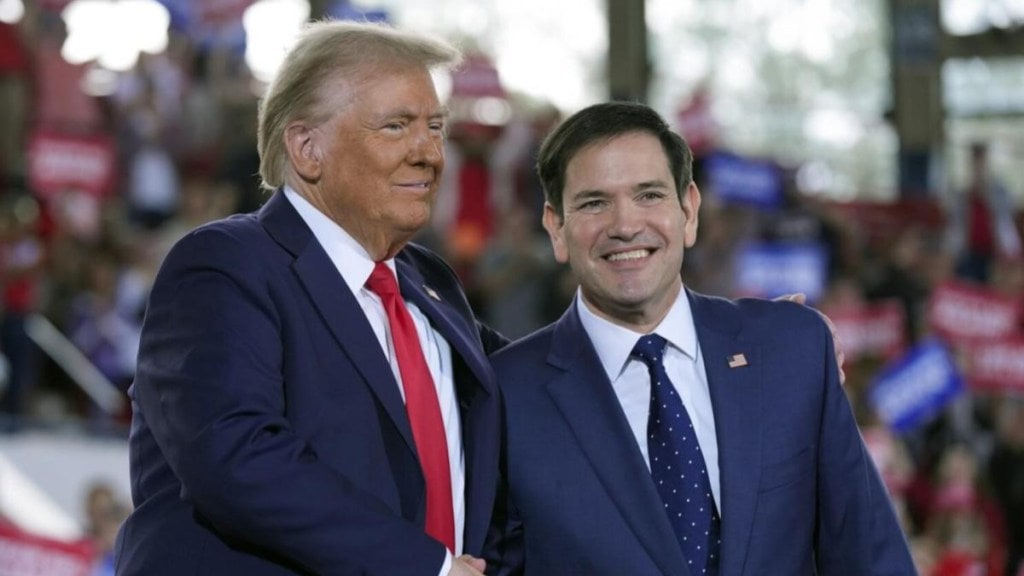Despite strong warnings from US officials, including Secretary of State Marco Rubio, Panama has remained resolute, rejecting any suggestions that it may relinquish control or face US intervention.
President Donald Trump has refused to back down on threats related to the Panama Canal, a vital maritime route through which goods flow between the Atlantic and Pacific Oceans. Rubio, long an advocate for limiting Chinese influence in the region, has echoed these concerns.
During a meeting with Panamanian President Jose Raul Mulino over the weekend, Rubio issued a stark warning, telling Mulino that the US would take `measures’ unless there were `immediate changes’ to Panama’s operations of the canal. The US claims these operations violate the 1977 handover treaty between the two countries.
According to Spokesperson Tammy Bruce, US Department of State, “ Secretary of State Marco Rubio met with Panamanian President José Raúl Mulino and Foreign Minister Javier Martínez-Acha today in Panama City to address critical regional and global challenges.”
China’s influence at the Canal
The primary concern raised by Rubio and the Trump administration is the growing influence of China at both ends of the Panama Canal. The Hong Kong-based company, CK Hutchison Ports, manages ports at the canal’s Atlantic and Pacific entrances, and Rubio has expressed fears that Beijing could exploit these facilities during a potential conflict with the US. In a Wall Street Journal op-ed, Rubio stated that Chinese control over these vital ports could render the canal vulnerable to `pressure’ from the Chinese Communist Party.
“I don’t feel that there is any real threat at this time against the treaty, its validity, or much less of the use of military force to seize the canal,” President Mulino responded, downplaying Rubio’s warnings. He also firmly rejected the idea of renegotiating the terms of the 1999 treaty that officially handed control of the canal to Panama.
Diplomacy or Threats?
In spite of the tough rhetoric, Rubio has attempted to approach the issue diplomatically. His visit to Panama was part of a broader trip that included other Central American nations like El Salvador and Costa Rica. While the US Secretary of State acknowledged the strategic importance of the canal, he also highlighted shared concerns, such as migration and drug trafficking, between the two nations.
Rubio made it clear that any shift in Panama’s relationship with China regarding canal operations would be crucial to easing US concerns. However, it is unclear what specific actions the US might take if Panama does not comply, as Panama remains firm in its rejection of foreign interference in its sovereignty.
Potential Path Forward
In response to US concerns, Panama has begun an audit of CK Hutchison Holdings operations at the canal, questioning the company’s management practices and the terms of its 25-year extension to operate the ports. While the audit is still ongoing, some analysts suggest that Panama might be willing to negotiate the removal of Hutchison from canal operations entirely. However, questions remain as to whether a shift in management to an American or European company would be enough to meet U.S. demands.
Despite these potential moves, Mulino remains steadfast in his stance. “We are not going to negotiate on the sovereignty of the canal,” he asserted.
US Foreign Policy
Rubio’s visit is not just about the Panama Canal. He has also focused on the broader challenges of illegal migration, drug trafficking, and the regional instability caused by authoritarian regimes in Venezuela, Cuba, and Nicaragua. During his meeting with President Mulino, Rubio praised Panama for its cooperation on curbing migration through the Darien Gap, a key route used by human traffickers and drug smugglers.
At the same time, Rubio reiterated the US government’s commitment to strengthening its relationship with Panama, a partnership that has been critical in addressing migration and security issues in the region.

